School Curriculum
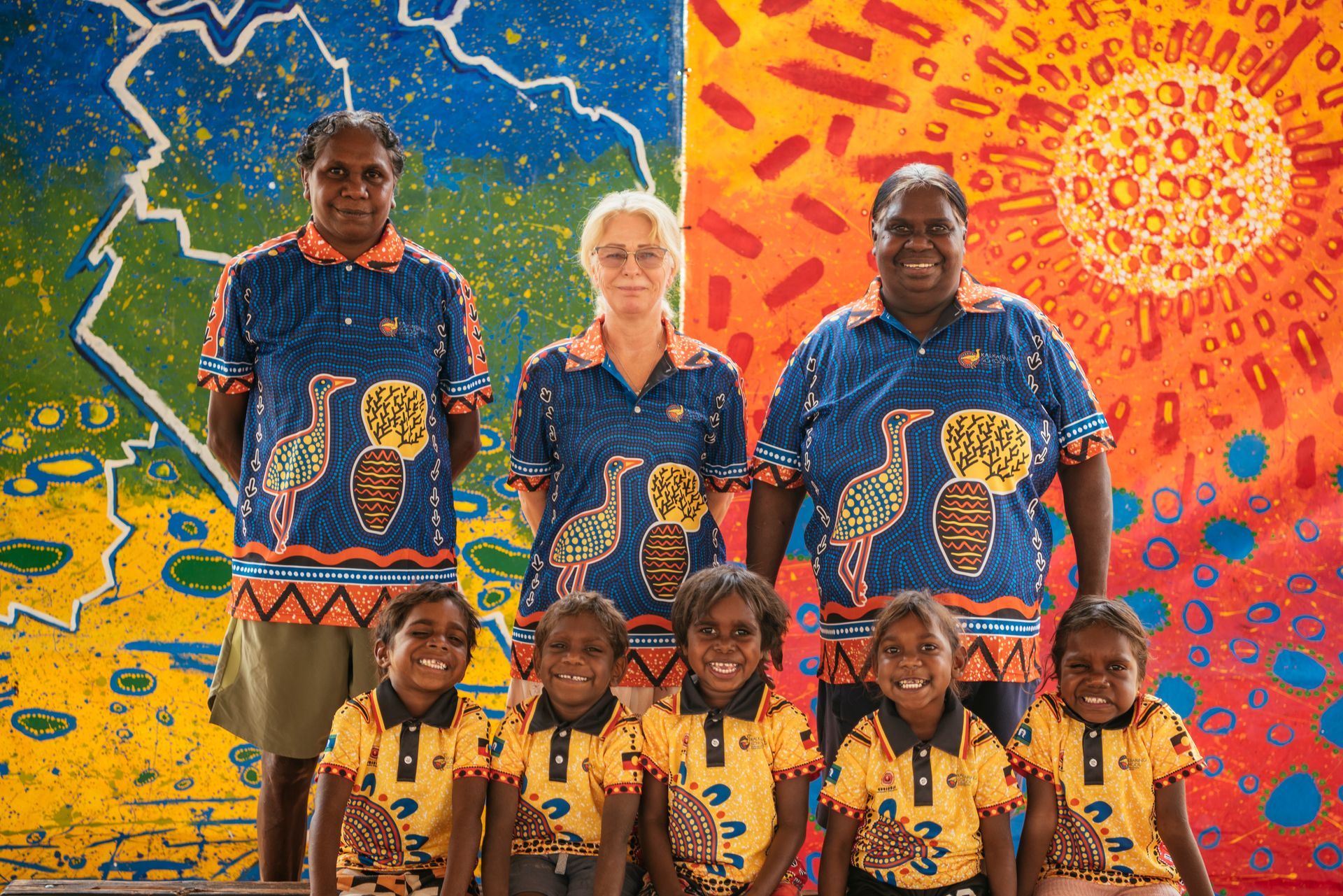
Preschool Years
Children who are four or turning four by the end of June can start Preschool.
Preschool at Kalkaringi School operates from the beginning of breakfast at 8.00am to the end of lunch at 12.15pm. Children can be picked up and dropped off by bus at the beginning and the end of the Preschool day. Parents are always welcome to come and visit the preschool and stay for a while, helping their children complete learning activities, reading with their child or assisting their child.
The preschool uses the Early Years Learning framework to deliver programs in Maths, Science, Literacy and Numeracy helping each child be prepared for Transition, the first year of formal schooling.
Learning through Play is a very important part of Preschool as well as working in groups and independently.
Preschool visits Playgroup daily for play and 3a (Abecedarian approach) and to share lunch. Transition also visits Preschool on a Friday morning for some shared activity.
Work is sent home as well as retained for the learning portfolio which is completed across the year.
Preschool children regularly use the library and sports resources of the big school and take part in fortnightly Early Years Assembly.
Preschool facilitates transitioning which focuses on the strengths of each child from home to a school program and later to Transition.
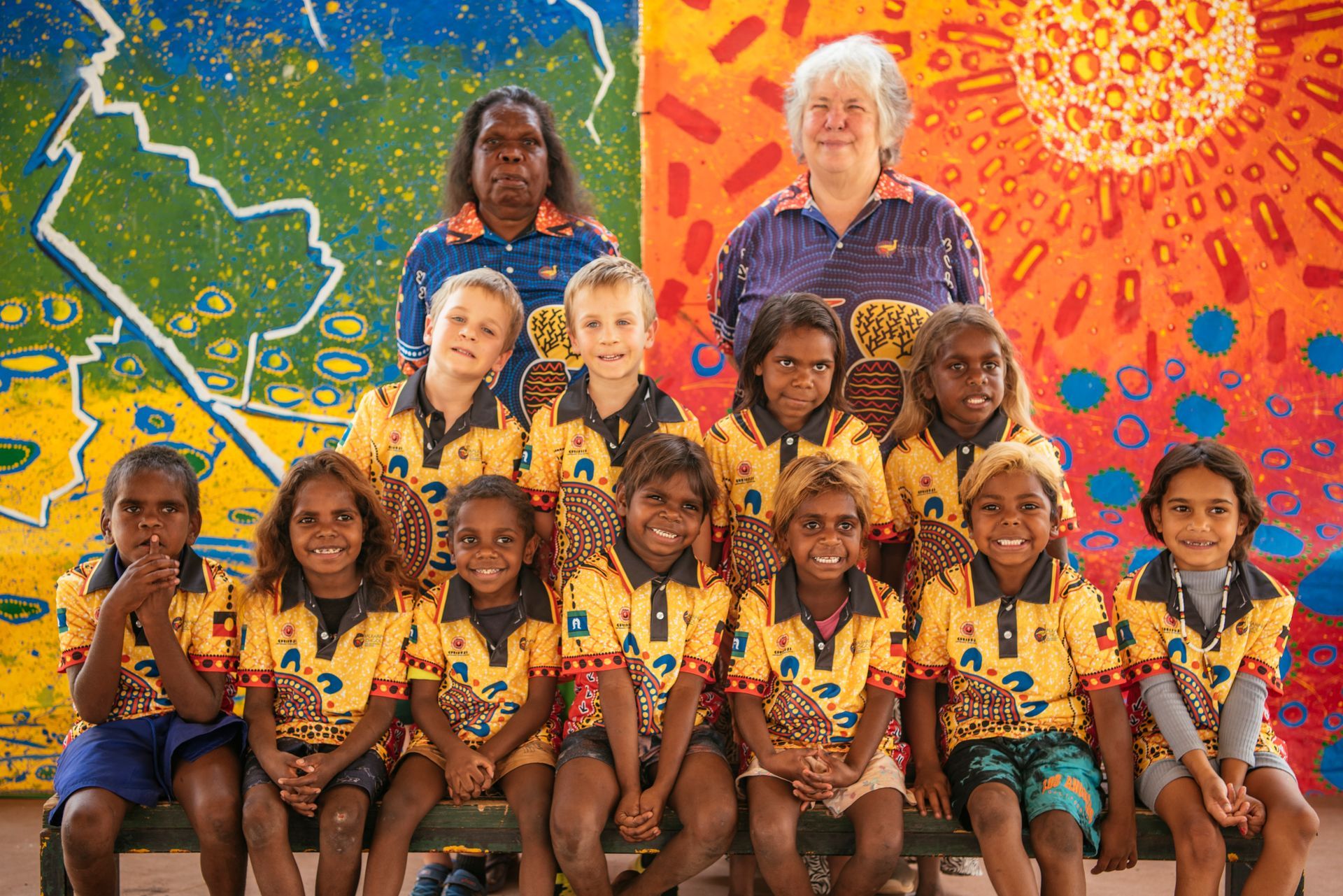
Early Years
Transition to Year 2.
Transition classes run based on the learning approach of investigative ‘play’. In addition, the Perceptual Motor Program (PMP) is also incorporated into their weekly program, to enhance student’s fine and gross motor skills.
The Transition to Year 2 programmes include a strong focus on the development of Literacy and Numeracy in line with the Australian Curriculum. In addition, students undertake daily ReadWriteInc. classes which aim to develop students’ skills in reading, writing, spoken language, vocabulary, grammar and spelling. Each class focuses on other Learning Areas of the Australian Curriculum for their afternoon sessions. These include Science & Technology, Art, Dance & Music and Culture. In addition, three times a week the Early Years join together for Sports sessions, where specific sports skills are taught.
Each class is supported by an assistant teacher(s) to aid the learning and development of all students within the class, with a focus on language and culture.
An Early Years Assembly is held every second Friday, where classes get an opportunity to showcase what they have been learning about. Achievements and school attendance is also awarded. Once a term we have a Family Assembly, where the community is invited to join us and celebrate the children’s learning.
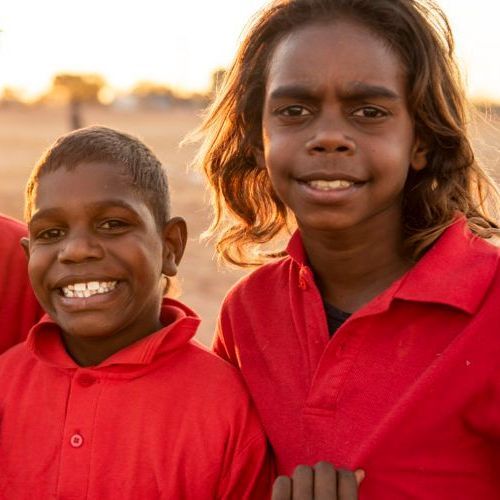
Primary Years
Years 3 to 6.
Our primary students are in 3 classes between Year Levels 3-6. Within each class, teachers have a focus on differentiating the curriculum to achieve the best results from their students.
We model our primary curriculum on the Australian Curriculum, with teachers focusing on literacy and numeracy. Other Learning Areas include, Humanities, Science, Health and PE. Within our literacy programs, we include EAL teaching methods and a phonemic approach to reading through implementation of the ReadWriteInc program. Each student is individually assessed and placed into an appropriate reading group to best target their individual learning needs to support growth.
The primary school involve themselves in regular sporting events, athletics carnivals and cooking activities. Through our attendance incentive plan, students win weekly awards by attending all 5 days of the school week. Using our TRUE Legends, students with exceptional behaviour are rewarded with the choice of a basketball or football.
Each class has a local community member in their classroom working side by side with our teachers as an Assistant Teacher. This is a vital relationship to ensure the learning remains cohesive by providing appropriate language and cultural support within the class.
Many of our students choose to progress their learning into secondary school via boarding schools in Darwin or Alice Springs. The primary school ensures that students are given every opportunity to make this transition if they so wish.
The primary school is a happy and positive place. We encourage team work and friendship and a sense of goodwill throughout friendship groups, classes, the school and community.
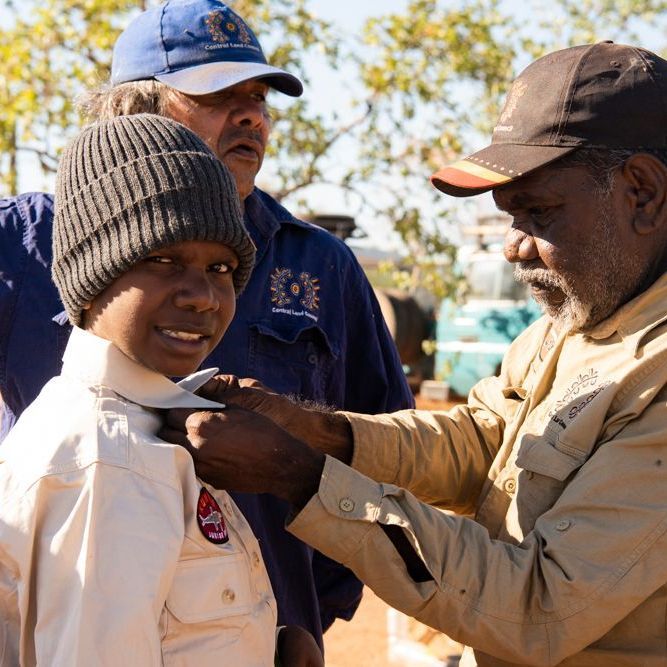
Senior Years
Years 7 to 12.
Kalkaringi has two secondary years’ classes, one for Years 7-9 and a senior years class for Years 10-12. The school presents an Employment Pathways curriculum which is linked to the Australian curriculum and is a program designed specifically for secondary students in a remote setting. This enables students to gain their NT Certificate of Education and Training (NTCET). The curriculum also prepares students with all the necessary skills to be able to make the transition from school to community and work.
Skills that student have developed over their school life are further enhanced and placed into a more practical setting. There is still a strong focus on literacy and numeracy, with all students participating in Fresh Start which is the secondary level for Read Write Inc and JEMM and NZ Maths with numeracy.
Students also participate in a variety of other subject from Junior Rangers, Health and Wellbeing, PE, Life Skills, Job Readiness, Woodwork and Cooking. Students that develop skills to a specific level are offered work experience as well.
The secondary school at Kalkaringi is very well resourced, there are three teachers and an assistant teacher that provide education and support to all students.
Whole School Learning Approach
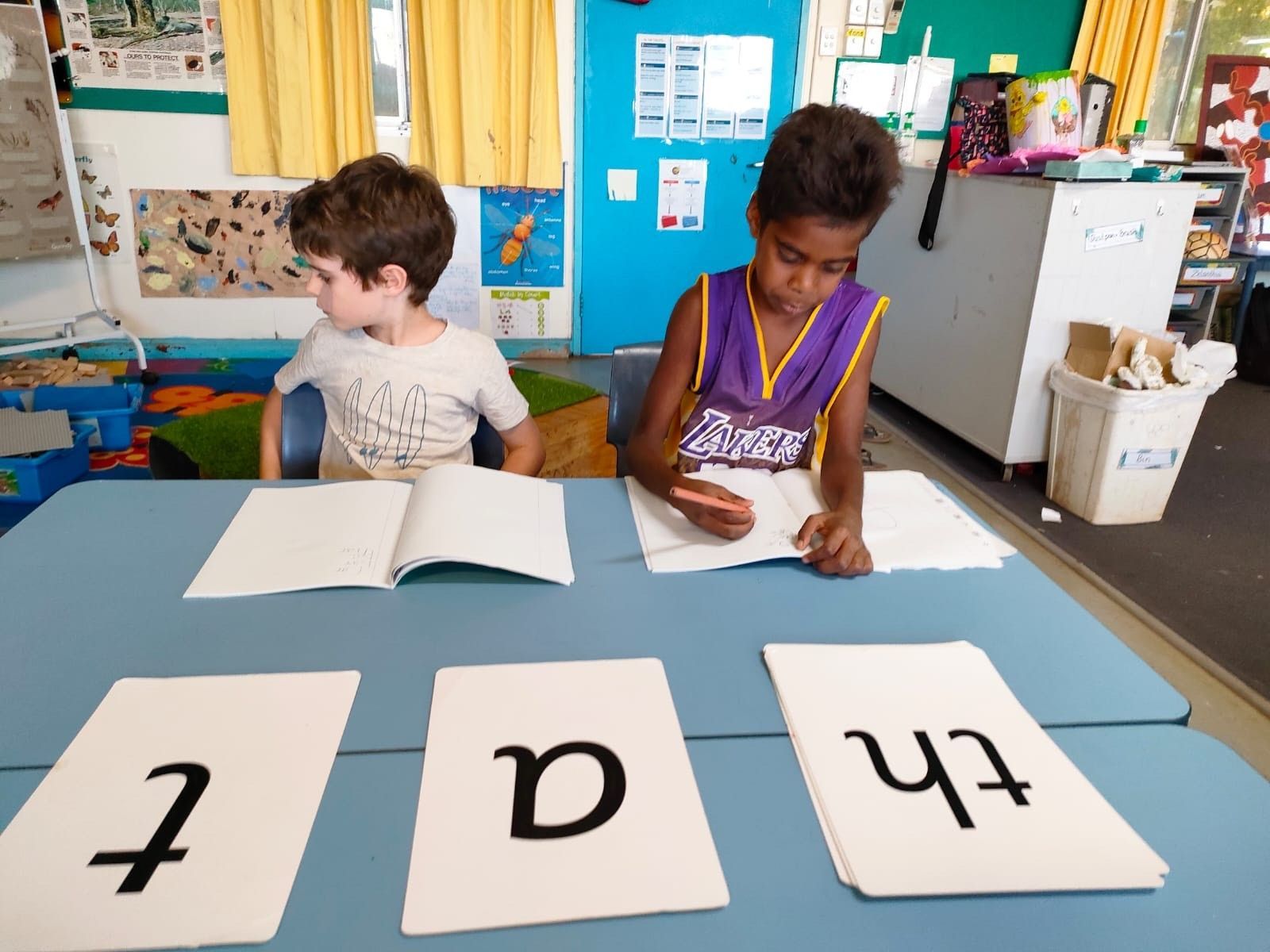

Read Write Inc.
Read Write Inc. is a literacy program developed by Ruth Miskin that aims to improve reading, writing, and language skills of young people. The program is implemented in our Early Years and Primary sectors and is widely used in primary schools around the Northern Territory.
Read Write Inc. is based on phonics, which is the study of the sounds of letters and their combinations. The program includes a structured approach to teaching, with clear and concise instructions for teachers and interactive lessons for students. The Read Write Inc. program has been shown to be effective in improving the literacy skills of our young people at Kalkaringi School.
Learning Through Doing
Learning Through Doing is a mathematics program implemented school wide that emphasizes the importance of hands-on learning to help students better understand mathematical concepts. The program encourages students to actively participate in the learning process through a variety of engaging activities and projects. By doing so, students are able to develop a deeper understanding of mathematical concepts and are better equipped to apply these concepts in real-world situations. The program also focuses on developing critical thinking and problem-solving skills, which are essential for success in both academics and in life.
Fresh Start
Fresh Start is a literacy program that aims to improve reading skills. It uses a multi-sensory approach that includes phonics, fluency, vocabulary, and comprehension instruction. At Kalkaringi School, Fresh Start is typically implemented in a one-on-one or small group setting and is tailored to meet the individual needs of each student. The program has been proven to be effective in improving literacy skills and boosting student confidence.
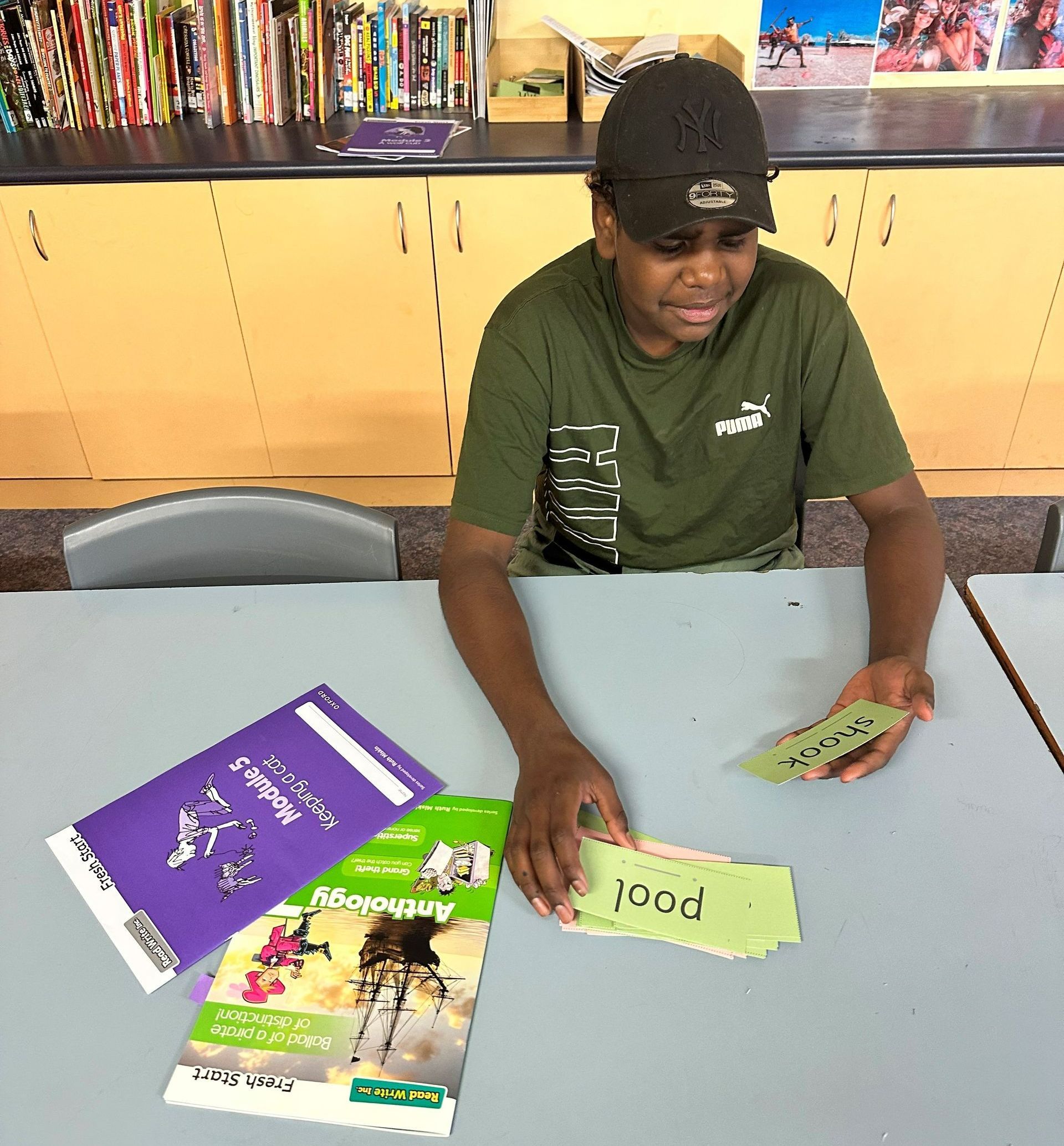
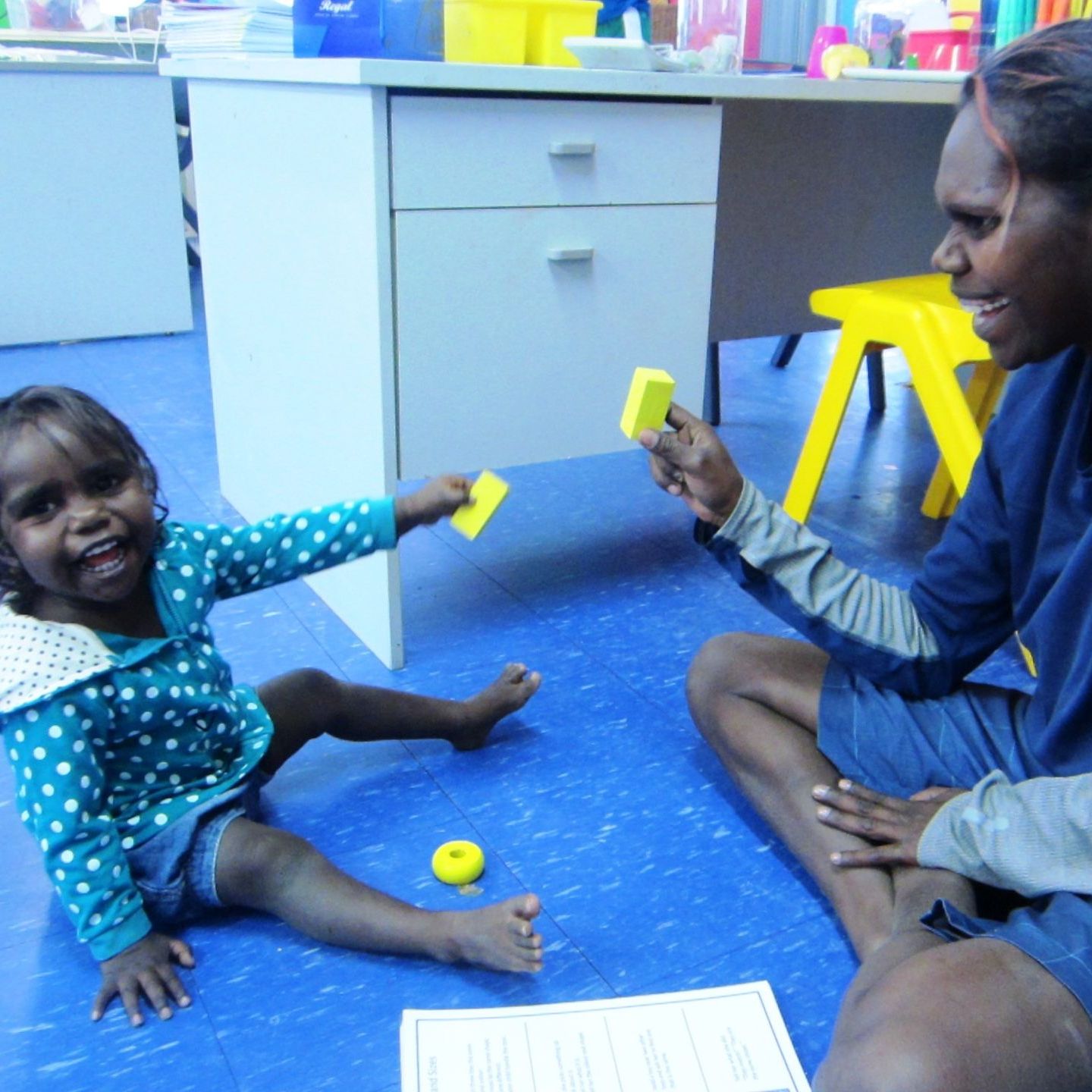
Families as First Teachers Program
Kalkaringi Playgroup is an early learning program run within the school grounds from Monday to Friday. Playgroup is open in the morning (9:00 – 12:00) and afternoon (12:30 – 1:30). Playgroup is for children from birth to 4 years of age and their family and carers. A nutrition program is run from Playgroup to ensure all children and families receive a cooked lunch and fruit.
Kalkaringi Playgroup is run through the Families as First Teachers (FaFT) program which is delivered in remote communities across the Northern Territory. The FaFT program supports the healthy development and early learning of young Indigenous children through the use of 3a (Abecdarian approach). Activities include Conversational Reading, LearningGames and Enriched Caregiving.
Playgroup runs an EYLF inspired play based learning program with the overall focus on building foundations to ensure school readiness. Playgroup staff also run parent workshops and provide opportunities to build adult capacity in areas such as nutrition, child and maternal health, hygiene and home care, behavioural management, financial management and adult literacy.
Kalkaringi Playgroup has a strong relationship with the clinic to ensure that children and families are healthy. Playgroup provides an excellent location for visiting health professionals to reach children and families.
Kalkaringi Playgroup also works closely with the crèche to provide outreach services to children of working parents. Preschool comes to Playgroup each day for 3a, play and lunch.
For more information about Playgroup contact Allison Mulley.
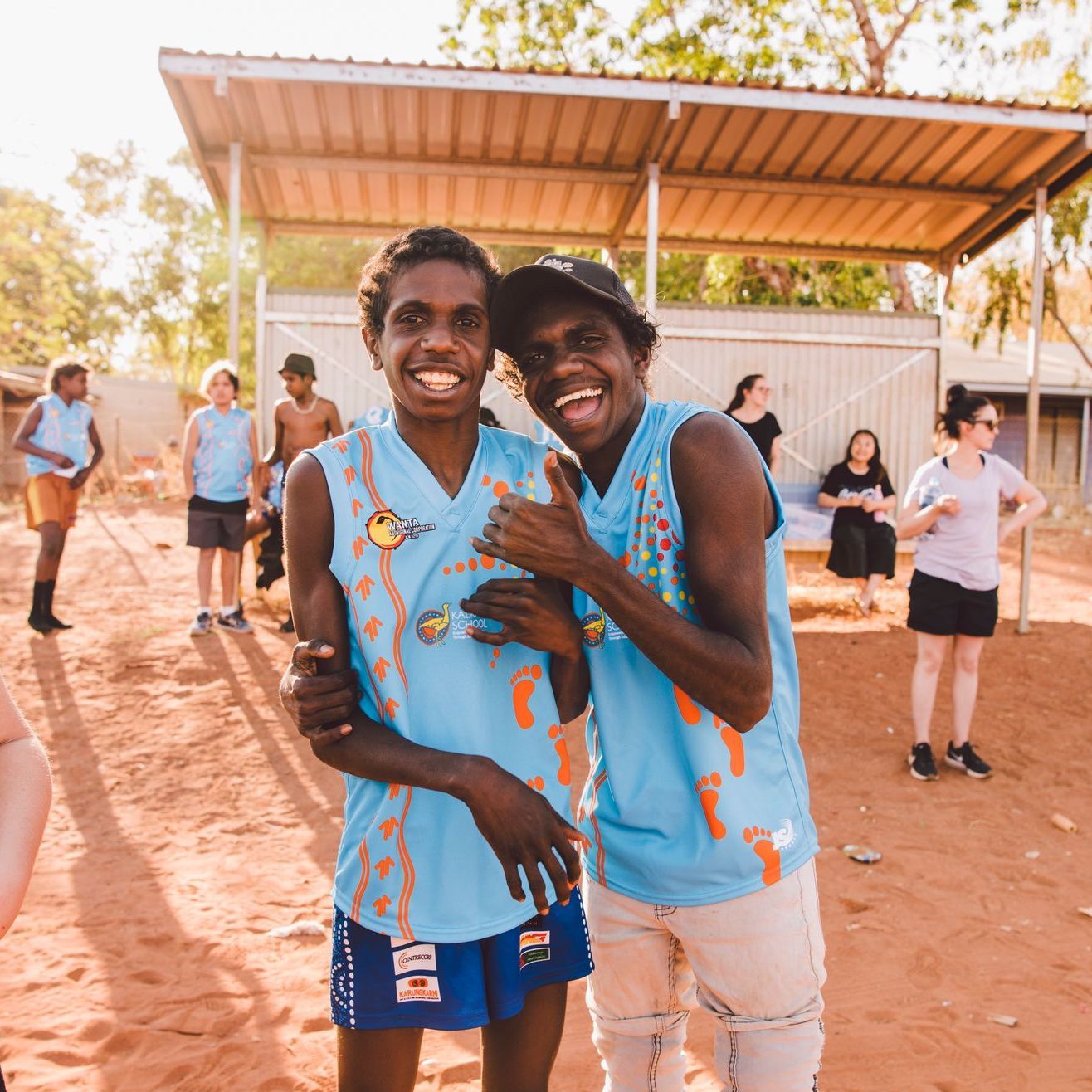
Wanta Brighter Futures Kalkaringi
Wanta is a not-for-profit Aboriginal Corporation that strives to tackle the significant gap in education outcomes between Indigenous and non-Indigenous students, whilst improving their health and well-being, and enhancing employment opportunities. The Kalkaringi program is one of six, established in remote communities spread throughout the Northern Territory.
The Wanta brighter futures program is an alternative education initiative that prioritises and addresses the unique needs of remote indigenous youth, with a specific focus on empowering Aboriginal and Torres Strait Islander youth. The program recognises that traditional educational models may not be suitable for these communities and instead focuses on providing essential life skills education in a flexible and engaging manner.
The program is designed to help indigenous youth achieve their full learning potential and be engaged in employment or education. It specifically targets youth between the ages of 12 and 18 and offers a range of life skills workshops that focus on critical thinking, communication, leadership, problem-solving, and financial management. These skills are essential for young people to succeed in life and to become active and engaged members of their communities.
In addition to providing life skills education, the program also offers employment opportunities for participants, which is crucial in addressing the issue of limited job prospects in remote communities. The program works closely with local employers and educational institutions to create pathways for youth to access employment and further education opportunities.
Furthermore, the program places a major emphasis on capacity building for local indigenous staff, with the goal of eventually transitioning the management of the program to local leadership. This approach not only helps to create sustainable employment opportunities for the community but also ensures that the program is culturally appropriate and relevant to the needs of the community.
Ultimately, the Wanta brighter futures program aims to empower Aboriginal and Torres Strait Islander youth in remote communities to take control of their lives and build brighter futures for themselves and their communities. By providing them with the skills, knowledge, and confidence they need to succeed, the program is helping to break down the barriers that have held back so many indigenous youth in the past and create a brighter future for all.
Increase school attendance
Improve education outcomes
Better prepare students for employment post-education
In the six years of operation in Kalkaringi, the programme has been very well received by the local community and stakeholders. The pupils line the fence to use the Wanta room morning, lunch, and afterschool and are always on the count down to the next reward trip so they too are firmly in favour of having Wanta around!
Moving forward, the Kalkaringi Brighter Futures Program aims to further build its relationships with the community, school, pupils and stakeholders, and to continue to support and deliver activities and trips tied to educational pathways and outcomes, particularly supporting senior students and their attempts to obtain qualifications in various areas, further supporting employment outcomes. Ultimately, Wanta works tirelessly to help the pupils of Kalkaringi School to achieve a fulfilling education experience that will enable them to have a brighter future and this year will be no different.




